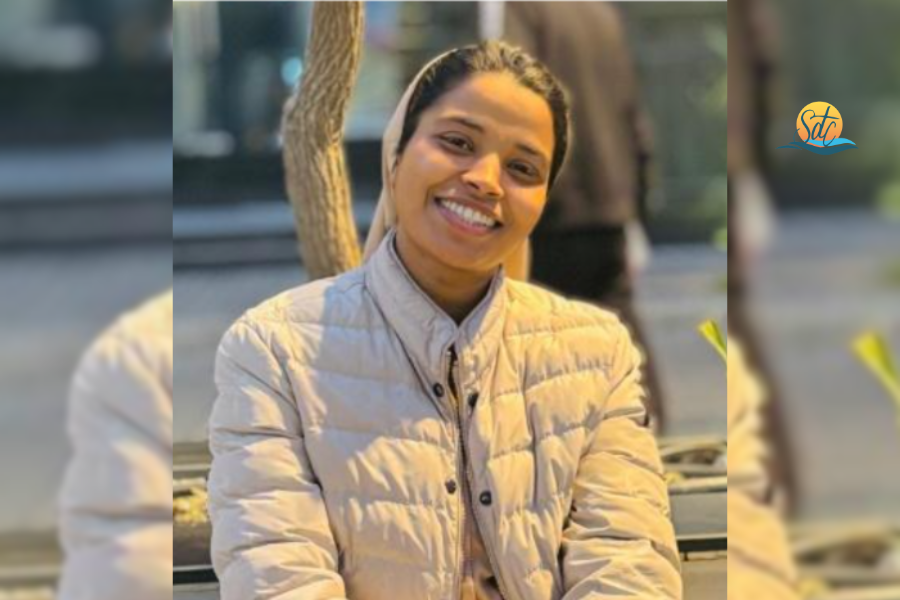About Pakistan, sister Rajia presents us with the complex educational challenge of this great Country with the largest percentage of young people in the world:
“The Islamic Republic of Pakistan is a culturally and linguistically diverse large south Asian country bordered by Afghanistan and Iran to north and west, China to the north east, India to the east and Arabian Sea to the south.
This is a Muslim majority country, currently the 6th most populous country with 212 million people.

There are more young people in Pakistan today than at any point in its history and it has world’s largest youth. 64 percent of Pakistani population is under 30ees.
If Pakistan manages to educate and skill this surging youth it can help to elevate the country’s economic growth and modernization.
Pakistan’s education system has evolved substantially from both its Islamic and British historical roots. It has improved greatly in 20th and 21st centuries. In recent years Pakistan has adopted increasingly modern methods of teaching and examination. The country has made all probable efforts to advance its educational system explicitly in past few years.
Regardless of facing plentiful challenges the country has still introduced several initiatives. The government has established a national educational policy to offer an agenda for educational restructurings. There has been intensification in educational funding as well. The government is allocating more assets to improve educational infrastructure and services. Additionally the emphasis has been placed on technical and vocational training to equip students with practical skills and boost employability. The 18th constitutional amendment has developed education to the provinces, allowing for more localized decision making and tailored solutions.
The trend of academies and home tuitions is very common in big as well as in under developed cities. Both government and private sector schools are trying their best to work hand in hand to elevate the literacy rate of our country.
No doubt the Country has made significant progress in improving the literacy rate but the education in Pakistan is complex and multifaceted issue.
Our realities like low enrolment rate, gender disparities, regional disparities, quality of education, Madrasah education, government initiatives given low value and above all very low motivation for study is adding considerably to bring the literacy rate down on daily basis.

Despite education being free and compulsory for children between 6 to 16 years old, Pakistan has 22.7 million children out of the schools.
Girls are most likely to be out of school. The causes of gender disparities are numerous. They include safety concerns, rape of young girls is sadly nor uncommon as well as child marriages. It is sad but most of our schools lack basic facilities, such as electricity, water and sanitation. The teaches are often lacking proper training, leading to poor teaching methods and it causes low student achievement.
The purpose of education is to replace an empty mind with an open one!
(Malcolm Forbes)
As we know the purpose of education is to turn the mirrors into windows. It is the power to think clearly, the power to act well in the world’s work and it is a power to appreciate life.
We, the Sisters of Charity of Saint Jeanne Antida, do our best to promote new and attractive methods of study.
We currently run two secondary schools (one belonging to our congregation, the other to the diocese).

1. Jeanne Antide Bible High School is located in Shahdara Lahore and is the first mission launched by our sisters in Pakistan. The school caters mainly for underprivileged children from the neighboring community. Four sisters work here. They take care of official and academic matters. They teach languages, religious education and science to students in the upper sections.
2. St. Anthony’s high school in Faisalabad is the other school run by the Sisters of Charity. This school belongs to the diocese of Faisalabad. The sisters are involved in both teaching and official work. The school was founded by one of the Christian communities to provide educational and moral support for their children.
We, the Sisters of Charity, who are part of this growing and struggling educational system, do our best to steer young people towards unique horizons.
By directing them towards hope and fraternity, considered the fundamental and most necessary values in today’s world. By making them understand that education is the true beacon that transforms potential into power, enlightening minds, breaking down barriers and forging a path towards a future where knowledge becomes the cornerstone of strength and change.
May the Almighty help all educators to carry out their task to the best of their ability, and bring forth a generation that values love, generosity and helpfulness. Amen.
We wish you a blessed Education Day 2025!”
Sister Rajia







